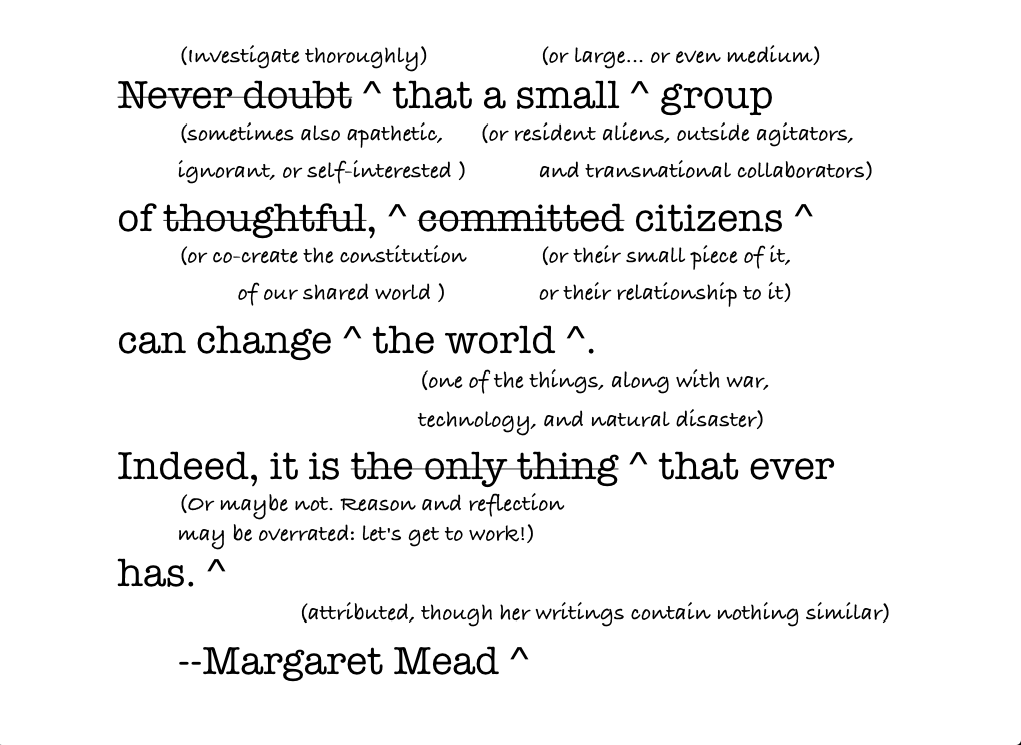- Facebook688
- Twitter2
- Total 690
I like to start seminars and talks by quoting Margaret Mead: “Never doubt that a small group of thoughtful, committed citizens can change the world. Indeed, it’s the only thing that ever has.” Almost everyone in my audience recognizes the quotation, and many have been using it in their email signatures or posting it over their desks. I provoke them by claiming that the statement is incorrect on several levels. Yet we should admire the inspirational intention behind it. We need to go “beyond Margaret Mead” by asking when, how, and under what circumstances small groups can change the world, and when, why, and under what circumstances such change is good. Last year’s Summer Institute of Civic Studies had rich discussions on that topic, captured humorously in this graphic by Joshua Miller:

It has never been clear that Margaret Mead actually uttered the quote in question. But a friend alerts me to this page on the Institute for Intercultural Studies website.
What is the source of the “Never doubt…” quote?
Although the Institute has received many inquiries about this famous admonition by Margaret Mead, we have been unable to locate when and where it was first cited, becoming a motto for many organizations and movements. We believe it probably came into circulation through a newspaper report of something said spontaneously and informally. We know, however, that it was firmly rooted in her professional work and that it reflected a conviction that she expressed often, in different contexts and phrasings. …
The “Never doubt” challenge is sometimes quoted in a longer form, with the coda, “indeed, it’s the only thing that ever has.” We decided on the shortened form both for brevity and because the exaggeration in the coda may, in print, weaken the basic concept rather than reinforce it.
Can my organization use the “Never doubt …” quote?
… If you wish to use the quote for non-commercial and non-partisan purposes, including the trademark sign where noted above, please do so with no charge and our good wishes. Following the quotation and the name Margaret Mead, you may put “Used with permission.”
This quote is now trademarked, and the trademark is held by Sevanne Kassarjian, New York. …
It seems to me that the motivation to trademark the phrase is benign: the Institute for Intercultural Studies is not charging anything and mainly wants to prevent partisan or commercial uses.
I don’t know much about intellectual property but find it surprising that one can trademark a quotation that a Google search finds 809,000 times (almost never with an ® after it) and that has appeared in published texts for decades. If I ever say something pithy and worthwhile, I won’t expect to be able to prevent partisan or commercial readers from quoting it–nor are partisan and commercial uses necessarily contrary to the spirit of the Mead quote. (Couldn’t a movement within a political party be a small group of thoughtful, committed citizens? How about a social enterprise?)
For now, I think I will continue to cite the following as my source for Mead’s remark: Nancy C. Lutkehaus, Margaret Mead: The Making of an American Icon (Princeton, NJ: Princeton University Press, 2008), p. 261.